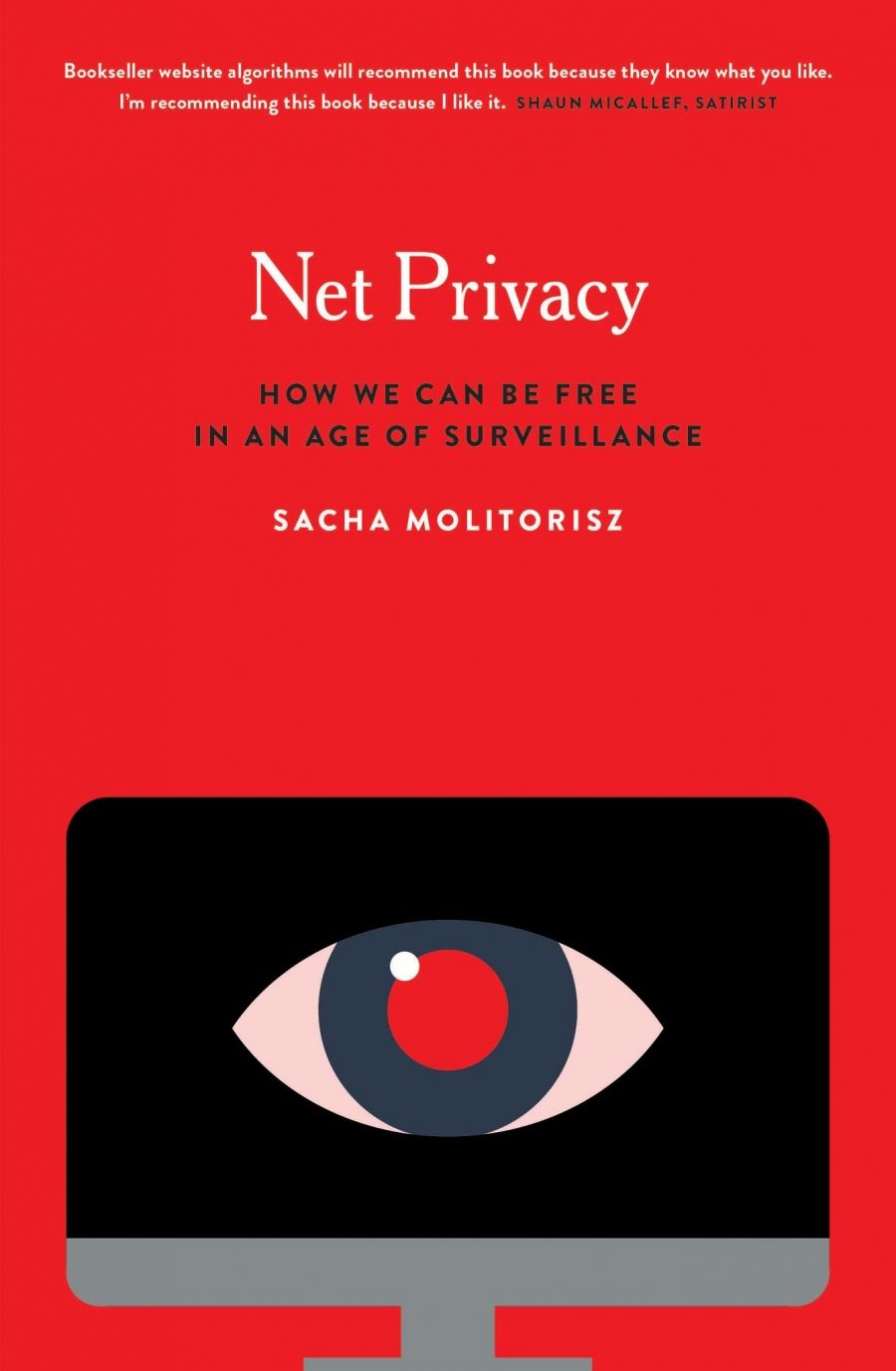
- Free Article: No
- Review Article: Yes
- Online Only: No
- Custom Highlight Text:
Spare a thought for the other existential crises. Remember climate change? Wealth inequality? The rising tide of fascism? Then there’s our newest apocalypse: bad technology. When we look back, the three years from late 2016 to early 2020 will go down as the time the scales fell from our eyes. Maybe the devices we have insinuated into nearly every moment of our lives had their own aims for us all along – our time, our attention, our outrage. In 2018, the runner-up for the Oxford Dictionary’s word of the year was ‘techlash’: ‘A strong and widespread negative reaction to the growing power and influence of large technology companies, particularly those based in Silicon Valley.’
- Featured Image (400px * 250px):

- Book 1 Title: Net Privacy
- Book 1 Subtitle: How we can be free in an age of surveillance
- Book 1 Biblio: NewSouth, $34.99 pb, 368 pp
- Book 1 Readings Link: booktopia.kh4ffx.net/jYJe6
If we are writing a history, that reaction began in earnest with the Cambridge Analytica scandal in March 2018, the revelation that a private company with a background in cyber-war psychological operations was now weaponising Facebook data to sway voters (most notably in the Brexit vote and the Trump election, both whisker-thin results). In the years since we have heard former Silicon Valley executives say that they would never allow their kids to use tech products; we have seen unprecedented scrutiny of tech giants from both journalists and regulators. In 2019, Facebook was fined US$5 billion by the American consumer watchdog, an amount two hundred times the size of the previous record fine. We saw, if not accountability, the beginnings of it.
Then the pandemic hit, and the tech giants responded ... well?
Microsoft was one of the first big companies in the United States to have employees work from home. Twitter and Facebook, followed shortly by Google, began to promote the health messages from governments and the World Health Organisation. Apple and Google announced a science-fiction-like contact-tracing project to help suppress the spread of the virus, while Netflix, Amazon, YouTube, and Spotify have become some of our few remaining portals to culture. Stuck at home, people have been reminded of the genuine magic of technology: that from a distance it allows us to be with friends, family, loved ones. ‘Has Coronavirus Killed the Techlash?’ Wired magazine asked. ‘What Techlash?’ began a headline in The Information, ‘Virus Could Remake Industry Giants’ Image’.
Spare another thought, then, for Sacha Molitorisz. His new book, Net Privacy, seizes on the moment just passed; it is a screed on how new technology alters our privacy that ends on a call for better regulation, to strike while the iron is hot. ‘The encouraging news is that the mood has shifted, and once moves for globally aligned privacy protections take hold, momentum can build,’ he writes. His postscript is dated January 2020.
Is it even worth reviewing Net Privacy? Perhaps, if only to point readers with limited time to books that are similar but better. Molitorisz sets as his goal the task of applying the philosophy of Immanuel Kant to questions of internet privacy – a noble aim, if you believe (as I do) that a large part of the misery in the world is owing to widespread ethical thoughtlessness. And yet it’s hard to figure out who Net Privacy is for. With its references to ‘relational privacy’ and ‘cosmoikopolis’, it is too academic for a general reader, but for readers already interested in internet privacy the book covers a lot of familiar ground. Someone drafting or enforcing privacy laws might be helped by the genuinely excellent literature reviews in the book, but when it comes to the actual question of applying ethical principles, Molitorisz is strangely hands-off. At the end of the book, he quotes Facebook’s new, post-Cambridge Analytica privacy commitment in full, and writes, ‘This is a concise and commendable statement of the value of privacy and the role of consent. It needs to be enforced.’
As for similar books, the late 2010s produced a literature that both reflected and galvanised the resistance to bad tech. Foremost is Shoshana Zuboff’s The Age of Surveillance Capitalism (2019), the most comprehensive look at the lucrative economics of data extraction and behavioural manipulation. Tim Wu’s The Attention Merchants (2016) situates digital advertising in the history of attention capture and resale, and James Williams’s Stand Out of Our Light (2018) reminds us exactly what we have to lose when that advertising overwhelms us. This year the Sydney Writers’ Festival (vale) was going to be headlined by Anna Wiener, whose Uncanny Valley (2020) is a spare and lucid first-person report from inside the moral vortex of Silicon Valley.
The pandemic hasn’t exactly killed the privacy movement – privacy concerns are still alive. Zoom, the video conferencing company that jumped from ten million users last year to two hundred million in March, has been widely censured for data leakages and lax security. But the criticism hasn’t slowed Zoom’s growth; clearly, in the time of coronavirus, connection is seen as more important than control of our data. Yet it’s this false dilemma that fuelled the techlash in the first place. Connection and privacy: we can have them both.
The other crises – climate change, fascism, inequality – will still be there on the other side of the pandemic. Our ability to deal with them will depend on our tech platforms, on our ability to focus and communicate and organise. Right now, the rest of our lives is in the same place our data privacy has been for years: we have very little control over either. When we emerge from the pandemic and reassert control over our offline lives, we ought to do the same, for the first time, over our online ones.


Comments powered by CComment